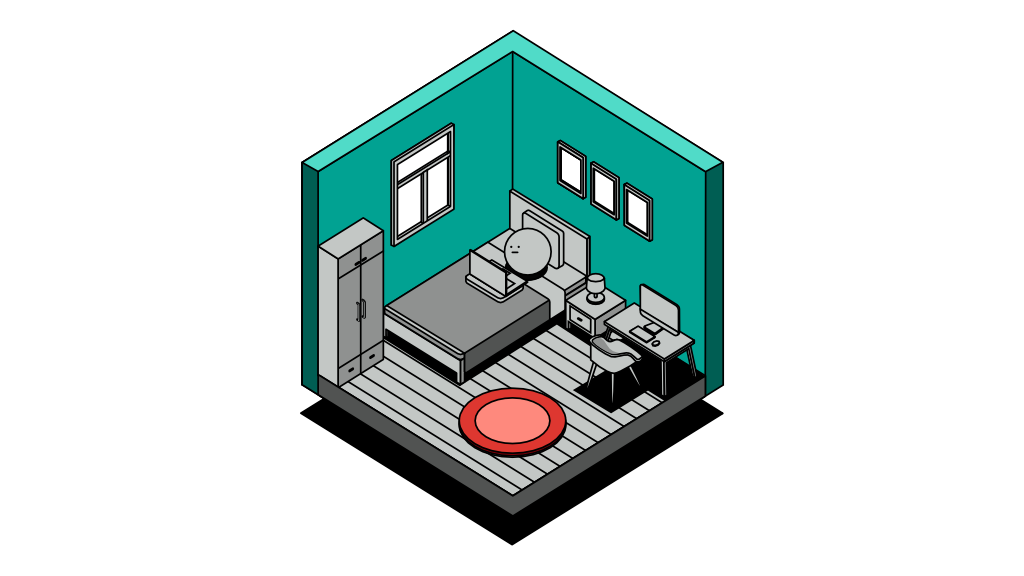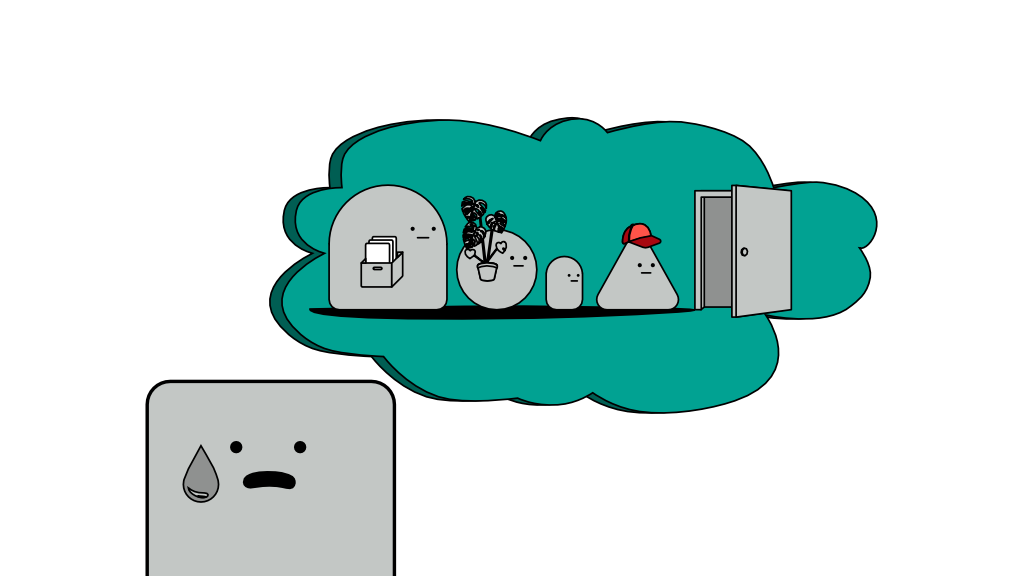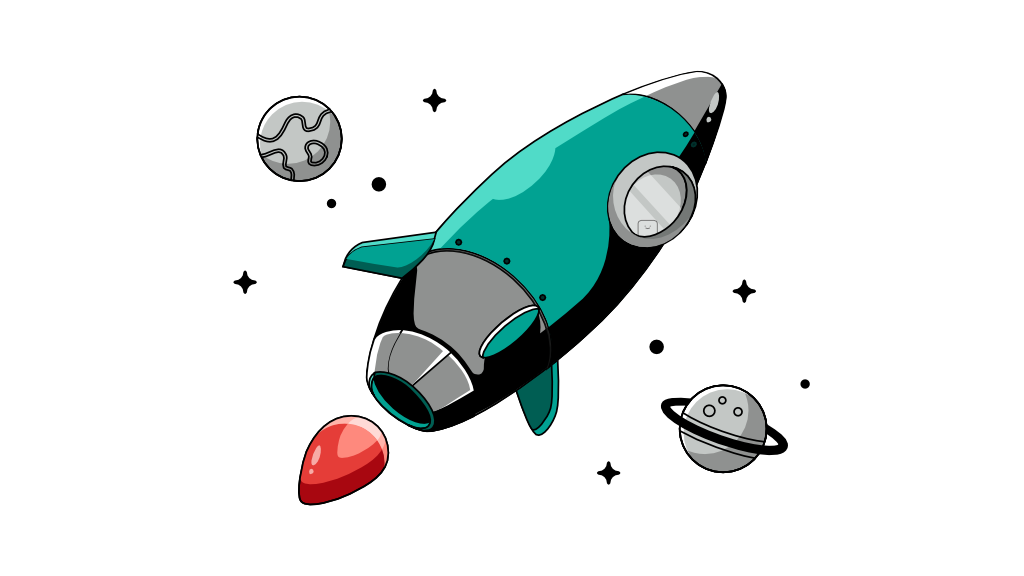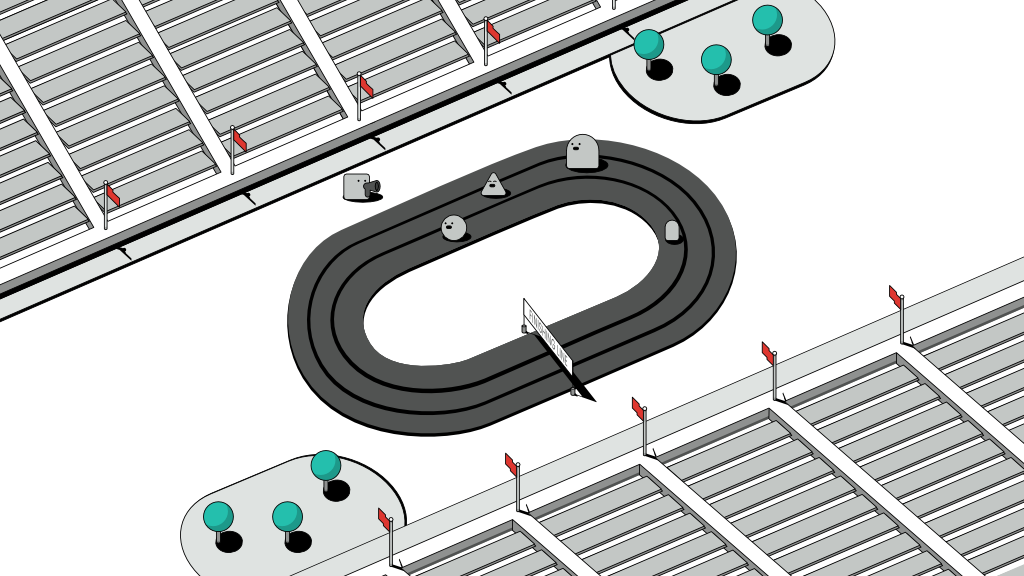Work from home better during the lockdown

Prior to the COVID-19 pandemic that took the world by surprise in early 2020, The concept of work from home hasn’t always been a welcoming idea to many employers. In the past, when someone requests to work from home and gets the approval, we tend to feel envious in a way that it is a privilege to be working in your comfort zone, away from all the daily distractions that come with corporate offices.
However, after almost a year working from home, that very same privilege and envious idea has become a nightmare for many working professionals who now no longer have the option of going back to their offices. And this is of course due to various reasons and may be subjective from one individual to another. Nevertheless, the most common root cause in many cases, the environment, has been chosen to be the focus of this article.
Your home is designed for pleasure, not work
First of all, let’s be clear. It’s your home we are talking about. You live there, you eat there, you watch TV there. It has always been your cocoon where you retreat to for peace and comfort. If that is the case, then why are many of us struggling to work from home? Well, it’s simple, your home has always been designed for pleasure but not necessarily for work. This has a lot to do with mental conditioning and how we perceive a particular space.
Think about it for a while, almost everyone on earth has spent their entire life treating their homes as their comfort space, up until the COVID-19 outbreak at least. Screening addicts go on to purchase their 60-inch curved TV so they can fold at the end of the day and reward themselves by binge watching their favourite Netflix series (let’s face it, Snowpiercer is addictive!). Cleaning therapists gratify when they can finally afford and get their hands on the latest overpriced Dyson vacuum cleaner. Music geeks spend an exorbitant amount of money on the latest hi-fi surround sound system, while gamers continue to stack up gaming consoles and brag about screen refresh rates.
The point is, many people have spent tremendous amount of time perfecting the insides of their homes to their liking and have become ‘mentally-conditioned’ to think of their homes as safe havens. Now imagine, that same haven you have created has also now become your office! Heck, it’s more than just your office, it’s your whole life now in one space.
Working from home for a day or two under previous circumstances, where everyone else is in the office except you, is not a big deal as you can continue to rely on emails and text messages as temporary communication channels because you know you’re going to meet them in person the following day for a more fruitful discussion. Another aspect that is now lost has to do with the fact that when we used to take a day off to work from home, all other family members are not at home - the kids are at school and your partner is probably at work too, making your home a perfectly quiet place that’s prepped for work.
That has all changed now when you realise you’ve spent the entire night yesterday trying to perfect the slides for a client pitch, only to wake up now at 7am to get on a virtual dry-run of the presentation to ensure everything runs smoothly. Sounds all too familiar? You’re not alone in feeling the way you do. If that isn’t bad enough, imagine other forms of distractions that push you even further over the edge. Kids are bored and they are begging for your attention, your spouse is most likely on a con-call just like you - each drowning another’s voice in the tiny space you both call an office.
Such conditions make the perfect recipe for disaster and can cause frustrations to many. Ultimately, these conditions would lead to mental breakdown and might have negative repercussions on work performance and even on relationships if left unaddressed.
Fighting temptation is never easy
Willpower is something that humans struggle with on a daily basis because largely, we are emotional beings. We are driven effortlessly by the craving for good food, sleep and entertainment, but not so much on things that require significant investment of physical and mental effort or discipline, including breaking a bad habit. No wonder new year resolutions are so hard to achieve.
By the same token, the human mind tends to avoid stressful situations and prefers to take the easy way out. Doing work in general works against that grain unless you have the privilege of having a paying job as a hobby. Simply put, anything that is asked of you and doesn’t naturally come from within you is a chore. Going out for a short walk to buy a pack of cigarettes for yourself sounds fine and you don’t mind doing it at all, but walking the same distance to buy a carton of milk simply because your wife asked you to is cumbersome as it is part of your marital obligations. It is the same reason why people tend to rant (silently) about work assigned to them but nobody rants about the pet projects they initiate on their own!
Expand this concept and think about the nature of the work you have to do on the job. Most are probably assigned if not self-initiated, and can be mundane or sometimes overly challenging. In any case, all of which requires mental stamina. Imagine the volume of stressful signals your brain is actively trying to circumvent every second. Coincidentally, the TV remote is just within reach, sending you cues to tune in to where you’ve left off in Alice in Borderland. After all, some white noise in the background won’t hurt, or will it?
We are conditioned by our environments
You probably wouldn’t think much about it at first. After all, while working in the office, you do hear chattering voices, people playing music or go on con calls without a earphone but you are generally oblivious to them. It is possible for you to do that because you are conditioned to work in such environments over time. Similarly, you are also pre-conditioned to not think (or at least try not to) about work or anything else while watching TV at home. At the end of the day, you are supposed feel pleasant at home, not frustrated.
The experience of working from home for many is probably best described in a way of trying to fit work into your daily home routines. You wake up in the morning right on time for the first con-call of the day. You decide to take the call in your bed because you stole a few more minutes of sleep. Between now and the next call in 30 minutes, you figure you could comfortably cook yourself a simple breakfast but soon find yourself anxiously checking the time on your laptop. Just before the call starts, you quickly shift your work to the dining table so you can eat while being on mute, unmuting only when you need to speak. Across the living room, the sofa appears to entice you and you go for it as a source of comfort to that crippling back pain from bad sitting posture. Before you know it, it’s 9pm when you wake up from an unintended nap. Your work is not completed, and you still have not taken your dinner. You’re probably beating yourself up at this point.
This happens because we have designed our homes for comfort and pleasure. Fighting against these temptations is the first step to improve your work from home experience but can be challenging. However, there are simple tips you can follow to help you with the re-conditioning process.
The mental re-conditioning process requires only simple adjustments
In my opinion, the solution to environmental temptations is to create a space within your home that allows you to condition your mind to think only about work while you’re physically there. As simple as it may sound, it is an incredibly powerful stimulus that can trick your brain into being in a focused state.
Let’s face it. Neither of us were prepared to work from home full-time when the pandemic first happened. Some homes did not have a workstation or simply aren't spacious enough to accommodate everyone in the household, especially when you’re renting a room and living with other tenants under one roof.
While having a lot of space helps, it simply isn’t an option for many who are renting rooms in the city. However, having a simple but comfortable 60cm x 120cm workstation at the corner of the room might just do the trick. The challenge really is to come up with boundaries for yourself e.g. when you are in that spot, you’d have to stay focused only on your laptop, screen, mouse and keyboard.
Personally, I find my laptop to be distracting as it is designed to be portable, something I use on-the-go, at the office or the cafe. Instead, I choose to use my desktop as a primary work device simply because it is a more permanent fixture. That way, I force myself to be in the same spot while I reply to my emails and work on tasks. Moving to the sofa would probably be the last thing on my mind considering the level of effort needed to unplug and re-set up my workstation.
Deliberately planting obstacles for yourself in an effort to fend off temptation is one way to look at it. The other way to look at it is from a perspective that a certain level of effort is required before you can kickstart your work, much like having to drive or take the train to the office. In the work from home context, you could very well reply your emails on your mobile phone while lazing on the couch. Effortless. Rather than doing so, you make it a point to get up and perform all work tasks only at the designated area. That way, you trick your brain into thinking that you’ve made the initial effort, and now you can go on clearing the items on your Trello board.
Finally, when it comes to ending the day, don’t remain at your workstation. As tempting as it can be to just open up one more tab on your browser and start scrolling Facebook or Instagram, it’s best to take it elsewhere using your mobile device. There is certainly nothing wrong in browsing your social media at your workstation, but remember, part of the re-conditioning process is also to establish work-life boundaries. Failing to be disciplined may cause you to ‘relapse’ and disrupt your objective of cultivating new working habits.
Final thoughts
People have spent centuries perfecting the insides of their homes to their highest standards. These days, large high-resolution TVs, sound bars and portable speakers, gaming consoles, full leather sofas, and king-size beds are furnitures that appeal to many.
Having these sources of comfort or pleasure at home while having to put in the effort to finish work tasks will generate conflicting signals and can cause your brain additional stress.
Mental re-conditioning is required to overcome this problem. People spend a great deal of their time conditioning their minds to only think of pleasure and nothingness as soon as they arrive at their homes. In order to perform your daily job while at home, you’re required to re-condition your brain and provide it with the environment it needs to support mentally stimulating activities.
Try dedicating a corner for work or a room, if that’s possible. Get a proper work desk or a simple one, with a comfortable chair. It’s very important that this ‘new’ environment you’re creating appears new to your brain and never before experienced, much like arriving to a new office. Once you’ve achieved that, slowly condition yourself to not think about anything other than work while you’re in there, similar to how you would only think of work as soon as you enter the office building. At 6pm, you can start packing your work and head to the living room to wind down.
I’ve witnessed a few ex-colleagues taking and applying this idea in their homes. Only after doing so, they realise the importance of having a proper workstation at home as it allows them to focus and be less mentally drained at the end of the day. They’ve become happier and it is reflected on their attitude and approach towards work. You may want to give it a shot and I’m confident you won’t be disappointed.


